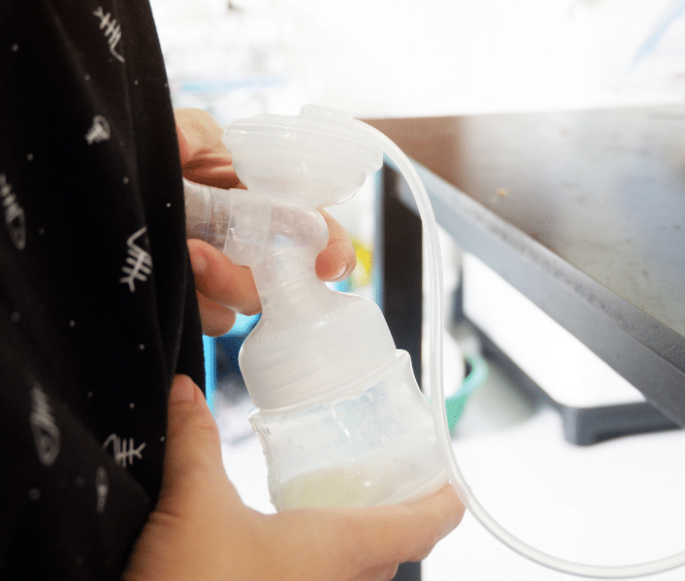
The Fee Is Free Unless You Win.
Top Rated Employment Law Firm
Protecting Families Since 1995
$450 Million Won
TABLE OF CONTENTS
The Break Time for Nursing Mothers Provision is a federal act providing nursing mothers the right to pump at work. It mandates that employers must provide nursing mothers a private space (other than the bathroom) and the time to pump breastmilk at work. The law applies to almost all employers, no matter the number of employees. Refusing a breastfeeding mother the right to pump breastmilk at work violates the law.
If your employer denies you the right to a reasonable accommodation to pump at work, you have the right to seek compensation. You need a pregnancy discrimination lawyer to help you fight for your rights and the justice you deserve. The employment lawyers at the Derek Smith Law Group in New York City, Philadelphia, Miami, Los Angeles, and New Jersey can help you fight for your rights to reasonable pregnancy accommodations.
The Break Time for Nursing Mothers Provision to the Affordable Care Act (ACA) mandates that employers must provide proper accommodations to nursing mothers in the workplace. The law set up specific criteria employers must follow to accommodate working mothers still nursing their babies. Employers must provide the following accommodations for nursing moms during working hours:

Employers do not need to pay employees for their pumping breaks. However, under the federal lactation laws, if an employee chooses to use employer-provided paid breaks to express breastmilk, she must get paid.
The Fair Labor Standards Act (FLSA) dictates the Break Time for Nursing Mothers Provision details. Any business that must abide by the FLSA must abide by the Break Time for Nursing Mothers Provision.
FLSA Exemptions
The FLSA applies to almost all employers. There are very few exemptions. Exemptions include very small farms without outside workers or a small business that employs family members only, to name a few.
Many states have lactation laws that provide additional rights to breastfeeding mothers.
Some employers can avoid following the law. They must prove that abiding by the law would cause severe stress for the company, otherwise known as undue hardship. Here are the criteria to prove undue hardship by providing breastfeeding accommodations:
If your request for a reasonable pregnancy accommodation to pump or express breastmilk creates an undue hardship, your employer must try to find another accommodation. You and your employer should work together to find a reasonable accommodation that helps you and your employer.
For instance, your employer may offer a supervisor’s office for you at certain times during the day. The office will likely have a door and some privacy to allow you time to pump when needed.
Discover how our expertise has helped clients overcome their legal challenges and achieve successful outcomes.
View All TestimonialsOlivia is the best! Oliva was very thorough, patient, and very detailed and descriptive regarding the process. She was very supportive of my sexual harassment case. From the very beginning, she communicated and would provide me with any updates and she was always available when I needed anything. More importantly, she always extended that comfort level of trust which always made me feel at peac... Read Full Testimonial
Casey Barkhordarian is a fabulous attorney to work with. He explained everything to me about the case (including the millions of questions I asked) right from the start of our very first meeting. He did so in a way that I could understand and was very prompt and clear with communication the entire time. Casey Barkhordarian is a very competent and knowledgeable lawyer to have on your team. I def... Read Full Testimonial
Matt Finkleberg is by far the best attorney I’ve ever hired! From the outset, it was evident that he was not just another lawyer; Matt is nothing short of extraordinary. He possesses the ability to do his job phenomenally while somehow managing to give me hope during one of my darkest of hours. Matt consistently returned my calls promptly, regardless of my questions, confusion, or self-doubt ... Read Full Testimonial
I cannot speak highly enough about my experience working with Matt Finkelberg. From the very beginning, Matt approached my case with an incredible level of professionalism, knowledge, and dedication that immediately put me at ease. It is rare to find an attorney who not only possesses an impressive depth of legal expertise but who also truly cares about the well-being and best interests of thei... Read Full Testimonial
Olivia is absolutely outstanding! She understands the emotional side of your case while being able to find the legal aspects of holding the employer accountable for breaking the law! Made a really terrible situation a little easier by explaining everything and helping me get everything in order and in the right hands. I would not use anyone else! Call them for any sexual harassment case... You ... Read Full Testimonial
This law firm is absolutely amazing!!! They went so above and beyond for me!!! I am so grateful for all their help with my difficult case!!! If you need a lawyer, you will be in great hands with their firm!!! And wait until you see the office! The building is so high tech I couldn't figure out how to get in the elevator lol!
It was a pleasure to have Casey represent and help me for my employment case. It was my first time needing an attorney, so I was a bit apprehensive at first – Casey took the time to answer all of my questions and fully explain everything to me, which really put me at ease. He was very attentive, supportive, and knowledgeable throughout the whole process – Casey would ask questions to ensure... Read Full Testimonial
matt is an excellent attorney. he handled my case with the utmost care and highly exceeded all expectations. i could not recommend derek smith and esp. matt finkelberg enough
matt is an excellent attorney. he handled my case with the utmost care and highly exceeded all expectations. i could not recommend derek smith and esp. matt finkelberg enough 🙂
Matt handled a suit against the City of LA and members of the a Neighborhood Council for racial discrimination and harassment. Ths was the first suit of this type filed on a Neighborhood Council Matt handled it with poise and above all professionalism. He walked me through the 3 year process and above all provided moral support and encouragement as I still experienced racism and harassment duri... Read Full Testimonial
Matt Finkelberg is Amazing and Devotional! It was a pleasure to have Matt represent me for my employment case. He was very attentive, supportive, and knowledgable throughout the whole process. Whenever I reached out he responded promptly which I greatly appreciated. Matt fought diligently and hard throughout my case to make sure my case was represented best. Thank you again Matt for everything.... Read Full Testimonial
It was a pleasure to have Casey represent and help me for my employment case. It was my first time needing an attorney, so I was a bit apprehensive at first – Casey took the time to answer all of my questions and fully explain everything to me, which really put me at ease. He was very attentive, supportive, and knowledgeable throughout the whole process – Casey would ask questions to ensure... Read Full Testimonial
Our dedicated attorneys are ready to fight for your workplace rights and ensure justice!
You cannot get fired from work because you need to express your breastmilk. You cannot get fired from work because you requested breastfeeding accommodations. Any retaliation, such as wrongful termination, demotions, reduction in hours, and other forms of punishment, violates the law.
If your employer refuses to accommodate you by allowing pumping breaks or retaliates against you, you have the right to file a lawsuit under the FLSA. The FLSA sets a statute of limitations of two years to file a lawsuit unless they can prove the employer purposefully violated the law. Then, the employee has three years to file a complaint.
When your boss denies you the reasonable accommodations to pump breastmilk at work, the courts may offer financial remedies as well as injunctive relief to help compensate you for your trouble.
Some of the remedies may include forcing your boss to provide the accommodations requested, reinstatement of your job and benefits, and financial relief for lost wages, benefit premiums, emotional distress, and pain and suffering.
Discuss your compensation options with a qualified pregnancy discrimination attorney to determine the relief you should request in settlement and from the courts.

As a nursing mother, you have rights under federal and state laws to express your breastmilk in a safe and private environment. Your employer must provide you the proper accommodations to meet this right. When they deny you the proper accommodations, you have the right to seek justice.
A dedicated pregnancy discrimination lawyer can help you file your claim against your employer for discrimination. They can help you determine the laws best suited for your claim and the proper time limit to file your claim. Finally, your employment discrimination lawyer can help you negotiate a settlement early with your employer and advocate for you in court if your employer refuses to negotiate.
A nursing mother needs to express breastmilk to feed her baby. For safety and health reasons, she needs a safe, clean space. Without these accommodations, she can have health problems, or the milk could be contaminated. If you are the victim of violations of the Break Time for Nursing Mothers provision, the Derek Smith Law Group’s experienced employment lawyers can help.
Are You a Nursing Mother Returning to Work? Did Your Employer Refuse Your Request for a Sanitary and Private Room and Time to Pump Breastmilk? Please Call Us at 800.807.2209 to Learn More About Your Rights.
Our experienced legal team provides reliable services in key U.S. cities, ensuring expert assistance for workplace discrimination and employment law matters wherever you are located.
 New York City
New York City
 New Jersey
New Jersey
 Philadelphia
Philadelphia
 Miami
Miami
 Los Angeles
Los Angeles
 San Francisco
San Francisco
 San Diego
San Diego
 Washington DC
Washington DC
Our experienced employment lawyers are dedicated to resolving your workplace rights concerns with expertise and care.